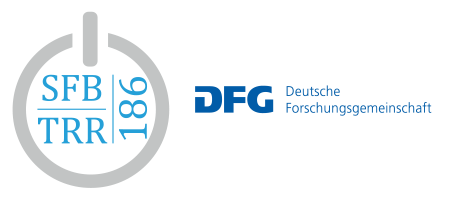Molecular switches regulating stress granule oscillation.
The eukaryotic translation initiation factor 2α (eIF2α) kinases detect cellular damage and environmental insults,
and activate the integrated stress response (ISR), a central signaling pathway that represses protein synthesis
and leads to the formation of cytosolic stress granules (SGs). Among the eIF2α kinases, Protein Kinase R
(PKR) is activated by double-stranded RNAs (dsRNA) and mediates translation repression in response to the
replication of many RNA viruses. The ISR is resolved by the upregulation of Growth Arrest and DNA Damage
inducible 34 (GADD34), a stress-induced regulatory subunit of protein phosphatase 1 that mediates
translational reactivation and return to homeostasis. We previously characterized and modeled the role of the
two key ISR switches, PKR and GADD34, in shaping the dynamics of the ISR during chronic viral infection.
During the past funding period, we identified additional regulators of PKR and GADD34. Contrary to its
previously described function, we found that Protein Activator of Protein Kinase R (PACT) acts as a negative
regulator of PKR activity. In addition, we uncovered a novel ISR regulatory step at the level of GADD34 mRNA
stability and established the AU-rich element-driven mRNA turnover as an important determinant controlling
GADD34 expression, thereby shaping the duration of the ISR and sensitivity to repetitive stress exposure.
Building on these results, we now propose to explore how the ISR switches PKR and GADD34 are regulated
under conditions of acute viral stress. In aim 1, we will elucidate the molecular mechanism by which PACT
regulates PKR activity during infection with respiratory viruses such as Sendai virus. The analyses will address
the impact of competitive binding to dsRNA, direct binding to PKR, phosphorylation of PACT as well as putative
interaction partners of PACT. Aim 2 will focus on a comprehensive understanding of the GADD34 negative
feedback loop by exploring uncharacterized pathways regulating the turnover of both GADD34 mRNA and
protein. Here, we will explore the role of upstream open reading frames in the GADD34 mRNA and induction
of nonsense-mediated mRNA decay, as well as post-translational modifications of the GADD34 protein whose
functions have not yet been established. The results of these studies will uncover the molecular principles by
which tight temporal control of both ISR switches is achieved, which sets the threshold for cellular
responsiveness and mediates adaptation to stress.
Dr. Alessia Ruggieri (Med. Fakultät Heidelberg)
Prof. Dr. Georg Stoecklin (Med. Fakultät Mannheim / Heidelberg)
